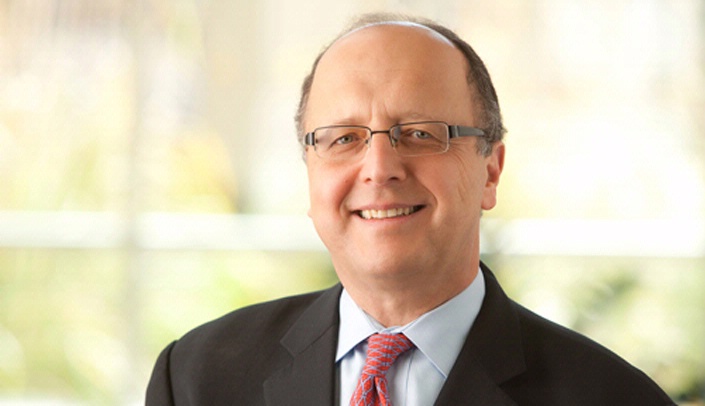Pierre Fayad, M.D., professor of neurological sciences at UNMC and medical director of the Nebraska Stroke Center at UNMC’s clinical partner, Nebraska Medicine, organized and chaired a session on April 23 at the annual meeting of the American Academy of Neurology in Los Angeles, the largest worldwide gathering of neurologists.
The session, “Hot Topics in Stroke Education and Practice,” was aimed at getting neurologists and stroke specialists to discuss the major shifts taking place in the acute management of stroke and address their impact on neurology residents’ education, and the practice of managing acute stroke.
“Evaluating and treating stroke is an essential skill of any future neurologic practice, and the session examined how these seismic changes will impact the organization and delivery of acute stroke care services in terms of human, educational, organizational, and financial costs,” Dr. Fayad said.
The session was prompted by two recently published major trials showing that patients who present emergently with a stroke due to a blocked artery in the brain should be evaluated clinically and with brain and vascular imaging for up to 24 hours to assess eligibility for treatment with thrombectomy (pulling the clot with a catheter). Previously, these patients were only screened for up to six hours after the stroke occurs, according to other previously published studies.
The new surprising results showed astounding benefits in the appropriately selected patients with this severe type of stroke for the much larger window. It is estimated that close to 16 percent of all stroke patients (from about 800,000 U.S. stroke patients annually) may be candidates for treatment within this new window.
This means stroke neurologists and interventionalists and the residents-in-training, will be busy screening a much larger number of patients emergently and treating them, Dr. Fayad said.
The neurology, neurosurgery and emergency room residents will be under much higher pressure to contribute to the timely and demanding evaluation of these patients, he said.
Top experts in the field discussed various aspects of the impact and presented potential strategies to meet the new patient care, organizational and educational needs. Dr. Fayad said the intensive audience participation reflected the anxieties and concerns associated with these new scientific advances.

This is very helpful and interesting information. If someone I cared about or I had a stroke I would hope to be treated at a hospital that is using this tremendously valuable information!